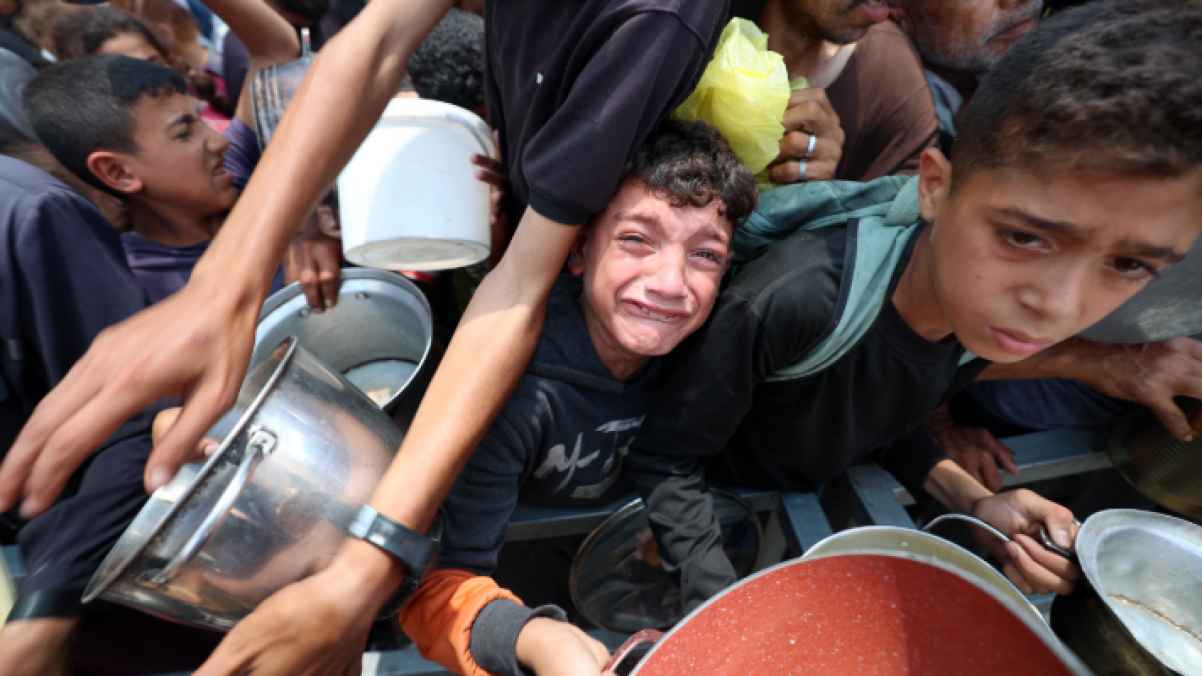Gaza’s Eid Wish… A Meal to Satisfy Hunger

In Gaza, toys are not bought during Eid. Instead, they are replaced with a long list of postponed wishes and empty stomachs waiting for relief.
Their little feet do not run after joy in the alleys. Instead, they stand, weary, in long lines holding empty containers, pleading for a little food — a morsel to sustain what remains of life in bodies worn down by siege.
On Eid, while the eyes of children around the world sparkle with joy, the eyes of Gaza’s children widen from hunger and waiting...
Each child carries not a doll, but a number on a relief list — waiting patiently like an old man who has learned that dreaming in Gaza is costly, sometimes paid with the price of childhood itself.
There, on the edges of broken streets, the lines stretch endlessly — as if they were extensions of the city's wounds. Children, women, and the elderly stand in pain-soaked silence. No words are spoken in the queue, only glances exchanged, fearful that the aid will run out before they reach it.
Every step tells a story of pain.
Every step in the line carries a muted scream. Beneath a scorching sun or in biting cold, they wait with fragile hope — that their stomachs might survive one more night without dinner, that their child might receive a meal to help him forget that Eid came and left him with nothing.
And when his turn comes, a volunteer scoops a spoonful of rice or a small piece of meat into his container. The child turns to his mother with a shy smile, as if he were carrying a treasure beyond value.
In Gaza, Eid does not mean new clothes or laughter echoing through the alleys — it means survival, a bitter battle with hunger, and a harsh lesson in patience memorized before the songs.
Gaza does not die, but her children know all too well: joy has a price. Hunger may steal Eid from them — but it will never steal their dignity.
